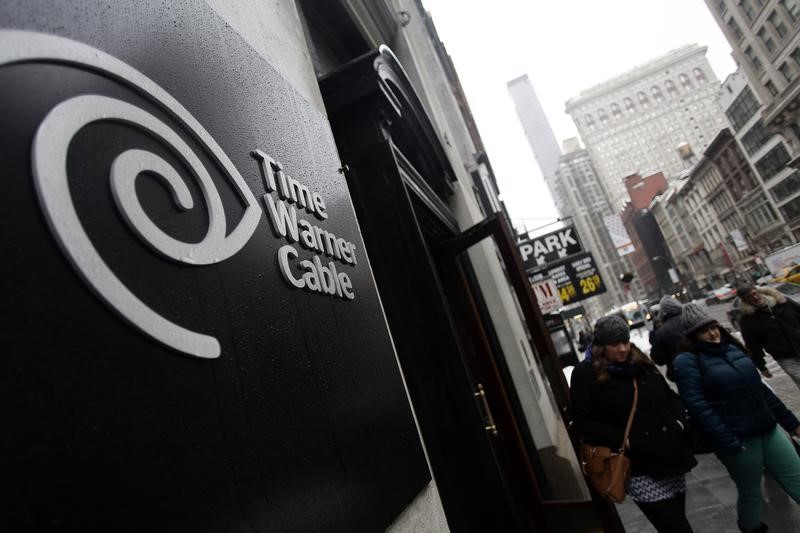By Subrat Patnaik and Jennifer Saba
(Reuters) - Time Warner Cable Inc (N:TWC) on Thursday reported a bigger-than-expected rise in video subscriptions for the first quarter but gave no indication of any merger deals after Comcast Corp withdrew its bid to buy the company.
Since the Comcast (O:CMCSA) deal was called off on Friday after U.S. regulators raised concerns, questions have arisen about whether Time Warner Cable is an acquisition target or if it would go it alone. On Monday, Reuters reported the Time Warner Cable was open to discussions with Charter Communications Inc (O:CHTR).
The future of the No. 2 U.S. cable provider is much on the minds of analysts.
Time Warner Cable Chief Executive Officer Rob Marcus said in a conference call when asked about potential deals: "We're not really going to respond to questions about any mergers and acquisitions."
The company said it added 30,000 residential video customers in the first quarter, its first increase since 2009. Analysts were expecting 11,800 subscribers. The number of high-speed data subscribers also rose.
"We feel great about the operating health of our business right now," Marcus said.
Shares of Time Warner Cable were down 0.6 percent at $156.98 in morning trading.
"Time Warner Cable is unmistakably investing for growth, and that has to raise questions about whether they would be willing to sell to Charter after all," MoffettNathanson analyst Craig Moffett said.
Time Warner Cable said it expected 2015 operating income before depreciation and amortization, excluding special items, to be flat this year.
Analysts also wondered whether Time Warner Cable would follow Verizon Communications Inc's (N:VZ) lead and start to offer smaller bundles to its customers, rather than traditional packages stuffed with hundreds of channels.
Chief Operating Officer Dinesh Jain said there was still a lot of value in the triple-play package of video, broadband and landline services.
"In terms of skinny packages, we don't want to be pioneers on that," he said.
Net income attributable to the company fell to $458 million, or $1.59 per share, in the quarter from $479 million, or $1.70 per share, a year earlier. Analysts were expecting $1.87 per share, according to Thomson Reuters I/B/E/S.

Revenue rose to almost 3.5 percent to $5.78 billion, below the analysts' average estimate of $5.83 billion.